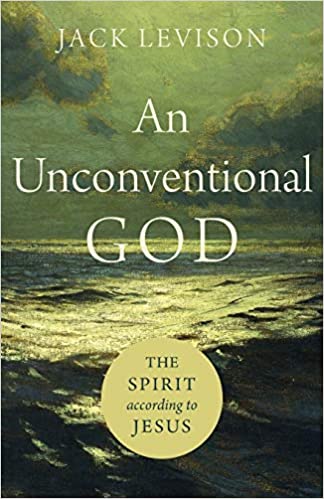BEN: The church fathers long ago observed that the first truly Trinitarian text in the NT is the story of Jesus’ baptism in which the Father speaks, the Son listens and is baptized, and the Spirit descends on the Son. What has all your study of the Holy Spirit taught you about the role of the Spirit not because one is hard pressed to find any genuinely Trinitarian texts in the OT. As Hebrews says, not even the three strangers who visited Abraham were anything other than angels.
JACK: I am (probably like you, Ben) a Trinitarian believer because I am an orthodox Christian in the United Methodist tradition. I am not a Trinitarian because I am a biblical scholar! Still, I do have ideas, and I laid some of them out in the conclusion to The Holy Spirit before Christianity. The Bible teaches us that:
· The Holy Spirit is especially present in crisis;
· The Holy Spirit is especially present in community; I think of the Spirit as the divine choreographer;
· The Holy Spirit is much to be feared; the Spirit is not the gentle, companionable, compassionate or even “feminine” (this is a misconstrual of feminine, by the way) side of God, somehow a counterbalance to a fierce God and uncompromising son. Think of Isaiah 63, where God turns against Israel because they rebelled against the Holy Spirit, or Jesus’ saying about blasphemy against the Holy Spirit (which I unpack carefully in chapter 6 of An Unconventional God), or Ananias and Sapphira’s experience of the Spirit (Acts 5).
BEN: Your chapter on Jesus’ baptism is a veritable intertextual feast. So let’s talk about intertextuality a bit and how it works, or doesn’t. I am not much enamored with the concept of ‘metalepsis’ or the assumption that the audience will catch the resonances of previous texts and go back to those texts and fill in the gaps and the fully, richer meaning of what the author intends. This seems to me an all too modern approach which assumes the ancients, including newly minted converts to the following of Jesus, including many Gentiles, would recognize the allusions to earlier texts, and actually have access to, if not knowledge of those texts. This seems to me to be a considerable stretch.
The other way to look at the text is to say, that like the case with John Wesley, the writer is speaking in Biblese, using ancient language to make his own points without assuming a knowledge of previous contexts on the part of the audience, or at least a few in the audience. For example, when John Wesley called himself ‘a brand plucked from the burning’ he wasn’t really exegeting the OT text in its original context, he was using Biblical language to refer to his own rescue as a child from the parsonage fire at Epworth. I think the Gospel writers assumed their text had meaning in and of itself and did not presuppose the audience was learned. The Evangelists were not trying to speak over the heads of their audience. They were offering words on target, words that had been used before in Biblical contexts, which added authority and power to what they were saying. How would you respond?
JACK: Thank you. I would respond, Ben, by saying that yours is an excellent distinction. I think we need to be commonsensical in how we read the Old Testament in the New. I try not to be overly sophisticated or ingenious in my appeal to the Old Testament. For example, I think the backgrounds I suggest for the dove would have been relatively accessible to those broadly familiar with the Old Testament.
On the other hand (and there is always another hand!), we see the ingenuity of the rabbis in the Talmud, and we see intimate knowledge of the Jewish scriptures in pseudepigraphical texts such as Jubilees and the Jewish Targums, which functioned apparently as synagogue paraphrases that everyone in the synagogue on any given day would hear. So there were undoubtedly readers who saw connections well beyond the scope of average Jews and, eventually, Christians. There may be ingenuity, though I, with you, think that the basic reading—or hearing—level did not demand it, especially when you are talking about a citation or allusion that requires knowledge of the broader context of an Old Testament text. They did not have, like we do, easily-carried, bound Bibles. So I am with you on this.













